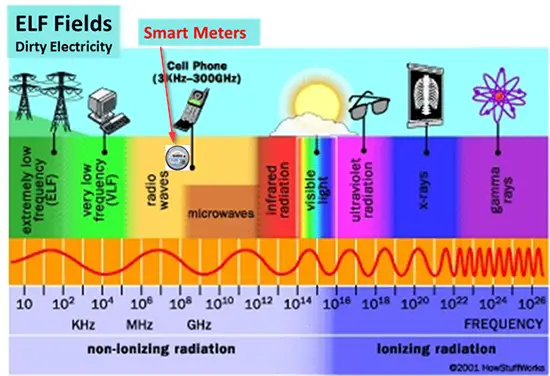Artificial Intelligence (AI) has taken the world by storm, revolutionizing various industries and promising to transform the way we live, work, and learn. In the realm of education, AI has been hailed as a powerful tool that can personalize learning experiences, enhance teacher efficiency, and improve educational outcomes. However, as the integration of AI into education becomes more prevalent, concerns about its potential negative impact on students and the educational system as a whole have started to surface. In this comprehensive article, we will delve into the dark side of AI in education, exploring the various ways in which it can be detrimental to students, teachers, and the educational ecosystem.
1. Lack of Human Interaction
One of the primary concerns surrounding AI in education is the potential erosion of human interaction. Traditional education thrives on the teacher-student relationship, where educators provide not only knowledge but also mentorship, support, and emotional connection. AI-driven education tools, such as intelligent tutors or chatbots, may replace human teachers to a certain extent. While these tools can be effective for delivering content and assessing performance, they lack the emotional intelligence and empathy that human teachers bring to the classroom.
In a world increasingly reliant on AI for education, students might miss out on valuable social and emotional learning opportunities. Interpersonal skills, collaboration, and empathy are essential life skills that cannot be fully cultivated in an AI-driven environment. Moreover, students might become isolated, leading to loneliness and mental health issues.
2. Data Privacy Concerns
The use of AI in education often involves the collection and analysis of vast amounts of student data. This data includes everything from academic performance to personal information and behavioral patterns. While AI can use this data to personalize learning experiences, it also raises significant privacy concerns.
The mishandling or misuse of student data can have serious consequences. Data breaches can expose sensitive information, leading to identity theft or other malicious activities. Additionally, the constant monitoring of students’ online behavior raises questions about surveillance and the potential for abuse. Who has access to this data, how it is stored, and how long it is retained are all questions that need to be addressed to ensure the protection of students’ privacy.
3. Reinforcing Biases
AI systems learn from the data they are trained on, which means they can inherit and even amplify biases present in the data. In the context of education, this can have significant negative implications. If the AI systems used for assessment, grading, or recommendation are trained on biased historical data, they may perpetuate and reinforce existing inequalities.
For example, an AI-powered admissions system that is trained on historical admission data could inadvertently discriminate against underrepresented minority groups. Similarly, AI-driven educational content recommendations might inadvertently steer students towards subjects and career paths that align with prevailing stereotypes.
4. Standardization of Learning
AI-driven education systems often aim to standardize learning experiences and outcomes. While standardization can help identify areas of improvement and ensure a certain level of quality, it can also stifle creativity and individuality. Every student is unique, and their learning journeys should reflect that diversity.
Overreliance on AI-driven curricula and assessments can lead to a one-size-fits-all approach to education, where students are expected to conform to pre-determined standards and expectations. This can discourage critical thinking, problem-solving, and creativity, as students may become more focused on “teaching to the test” rather than exploring their own interests and passions.
5. Job Displacement for Educators
As AI technologies become more advanced, there is a growing fear that they may replace human educators. While AI can assist teachers in various ways, such as automating administrative tasks and providing personalized feedback, it cannot fully replace the nuanced and complex roles that educators play.
The displacement of human educators by AI could result in job losses and undermine the profession. Moreover, it could deprive students of the mentorship, inspiration, and guidance that only human teachers can provide. The role of educators should evolve alongside AI, focusing on activities that require emotional intelligence, creativity, and ethical guidance.
6. Inequality in Access
AI-powered education tools require access to technology and the internet. Unfortunately, not all students have equal access to these resources. The digital divide is a significant barrier to equitable education, as students from lower-income backgrounds or underserved communities may not have the necessary devices or internet connectivity.
The adoption of AI in education could exacerbate these inequalities. Students who do not have access to AI-driven learning tools may be left at a disadvantage compared to their peers who do. This could further widen the achievement gap and perpetuate educational inequalities.
7. Dependency and Reduced Critical Thinking
While AI can provide answers and solutions quickly, it may inadvertently discourage students from developing critical thinking skills. When students become overly reliant on AI for information and problem-solving, they may not learn how to think critically, analyze information, or solve complex problems on their own.
Additionally, the algorithms behind AI-driven content recommendations may create filter bubbles, where students are exposed only to information and viewpoints that align with their existing beliefs and preferences. This can hinder their ability to engage with diverse perspectives and think critically about complex issues.
8. Ethical Considerations
The ethical implications of AI in education are complex and multifaceted. AI systems must be designed and used ethically to ensure fair and just outcomes for all students. This includes addressing issues related to bias, privacy, transparency, and accountability.
There is also the ethical dilemma of using AI for surveillance and monitoring of students, as it raises questions about consent and autonomy. The decisions made by AI algorithms, such as those related to admissions or scholarships, can have life-changing consequences for students, making it imperative that these systems operate fairly and transparently.
9. Loss of Teacher-Student Relationships
One of the cornerstones of effective education is the relationship between teachers and students. AI can inadvertently disrupt these relationships by replacing human interaction with automated systems. This can lead to a lack of mentorship, guidance, and emotional support that students often receive from their educators.
10. Bias and Discrimination
One of the most significant concerns regarding AI in education revolves around bias and discrimination. Machine learning algorithms used in educational AI systems often learn from historical data that may be tainted with biases. These biases can be related to race, gender, socioeconomic status, or even educational background. When AI systems rely on such biased data, they perpetuate and sometimes even exacerbate existing inequalities. For instance, an AI-powered admissions system may favor certain groups over others, reinforcing discrimination rather than promoting diversity and fairness.
11. Loss of Human Connection
Education is not merely about imparting knowledge; it is also about fostering critical thinking, empathy, and interpersonal skills. AI, by its very nature, lacks the capacity for genuine human connection. When educators and students become overly reliant on AI-driven educational tools, there is a risk of dehumanizing the learning experience. This can have profound implications on a student’s emotional and social development.
12. Reduced Accountability
AI can inadvertently shift responsibility away from educators and institutions. When decisions regarding teaching, grading, and course recommendations are made by algorithms, it becomes challenging to hold individuals or institutions accountable for their actions. This lack of accountability may lead to a decline in the quality of education.
13. Overemphasis on Standardized Testing
AI-driven educational systems often place a heavy emphasis on standardized testing. While these tests can provide valuable data, overreliance on them can lead to a narrow focus on rote memorization and test preparation. This approach may stifle creativity and critical thinking, which are essential for real-world problem-solving.
14. Inadequate Training and Understanding
The integration of AI in education requires educators to acquire new skills and knowledge. However, many educators lack the training and understanding needed to effectively use AI tools in the classroom. This knowledge gap can lead to frustration and inefficiencies, ultimately hindering the educational process.
15. Tech Dependence and Distracted Learning
AI-driven educational tools can be engaging, but they also run the risk of making students overly dependent on technology. Excessive screen time and a constant barrage of digital distractions can negatively impact students’ ability to focus, think critically, and develop essential life skills.
16. Lack of Personalization
AI is often touted for its ability to personalize learning experiences. However, it can sometimes fall short in truly understanding individual needs and preferences. Overreliance on AI-driven personalization may lead to a one-size-fits-all approach that does not cater to the unique learning styles and needs of each student.
Conclusion
While AI has the potential to transform education in positive ways, it also poses significant challenges and risks that cannot be ignored. As we navigate the integration of AI into education, it is crucial to strike a balance between harnessing the benefits of AI and safeguarding the well-being and educational experiences of students. To do this, educators, policymakers, and technologists must work together to address the concerns outlined in this article, ensuring that AI serves as a tool for enhancement rather than a detriment to the future of education.







Leave a Reply